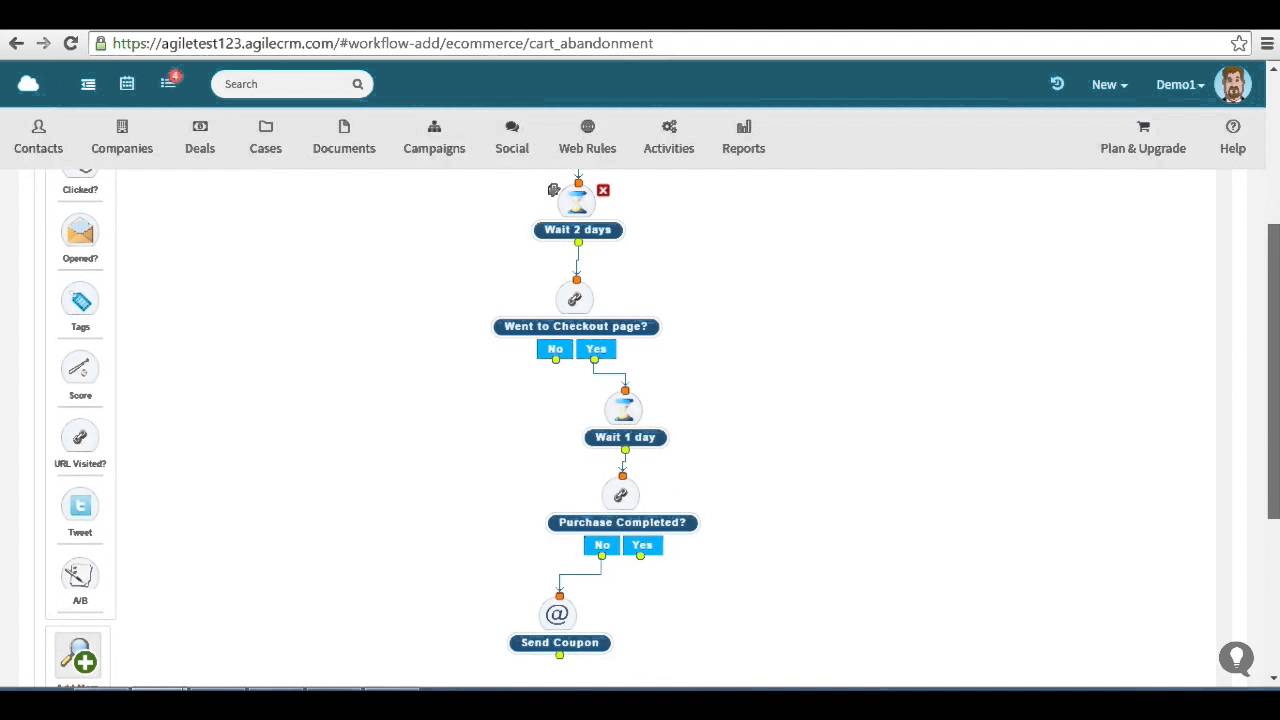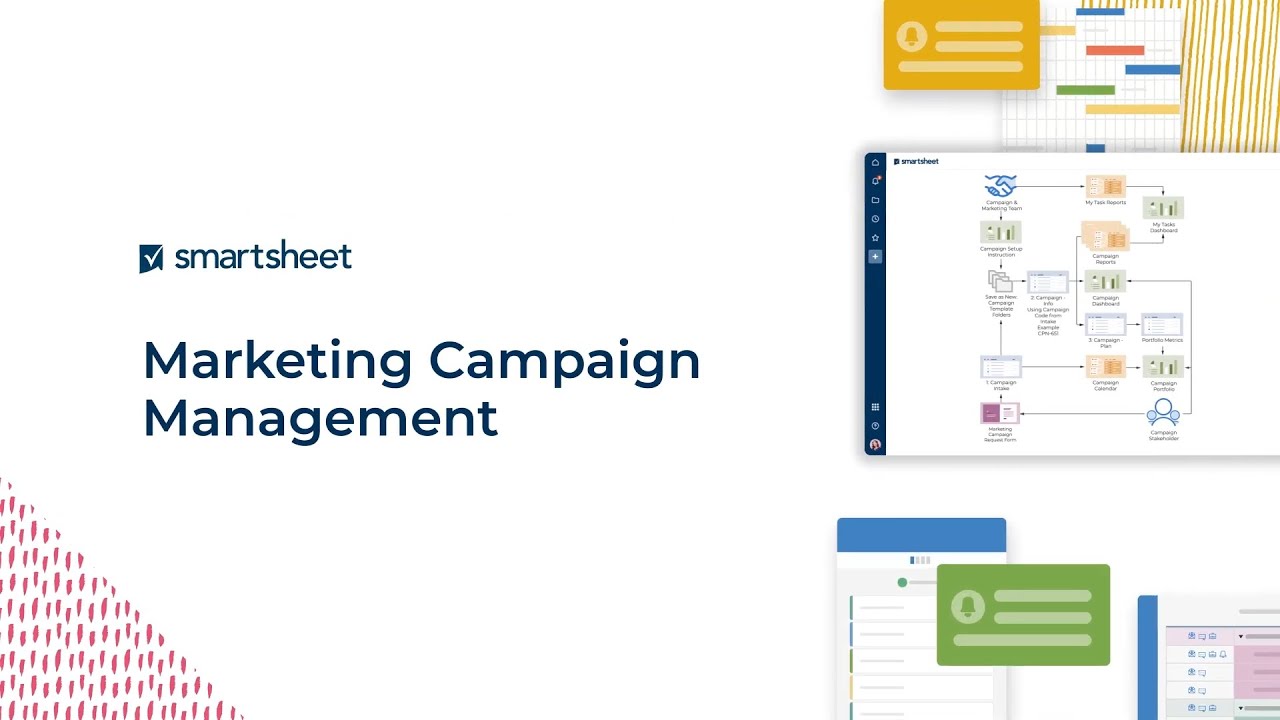Direct marketingcampaigns are managed through the planning, execution, monitoring, and analysis phases.
These things are done at every stage of a marketing campaign, from coming up with the idea to figuring out how well it worked.
Campaign managementhas evolved into a complicated, dispersed process that takes place in email, on social mediaplatforms, on businesswebsites, communities, and blogs.
As well as on mobile devices thanks to software like marketing automation software, analytics platforms, and new delivery methods and channels.
As technology has gotten better, it has become easier to automate more tasks and create marketing materials that are more personal.
If you want your marketing campaign to be successful, you need to think about audience segmentation, content creation, email automation, and personalizing messages.
What Is Campaign Management?
Campaign management is the process of planning, implementing, monitoring, and evaluating a marketing campaign, which is often centered around a new product launch or event.
Campaigns usually involve a lot of pushes to potential customers through email, social media, surveys, print materials, prizes, and other resources, all about the same topic or idea.
A marketing campaign is undertaken to convince potential customers to consider a certain issue that your good or service can solve.
These adsare essential for drawing in your audience and increasing brand recognition.
You need to be an expert at multi-channel campaign management in order to know what your audience wants.
What Does A Manager Of A Marketing Campaign Do?
A marketing campaign manager is needed since managing a marketing campaign requires a lot of juggling.
Planning and carrying out marketing campaigns are within the purview of the marketing campaign manager.
Copy, design, and audience segments are all things that are customer-facing that they will monitor and schedule.
But in order to make sure the campaign achieves the right objectives, the marketing campaign manager must also track, analyze, and report on the campaign's efficacy.
Despite having a lot on their plates, marketing campaign managers are not in it alone.
Marketing campaign managers often work with sales, sales operations, outside agencies, and other members of the marketing team to create and run campaigns that work.
Components
Audience Division
Customer segmentation, which is the first step in managing a marketing campaign, is the process of figuring out how todivide your audience into groups.
Demographic data, such as age, gender, place of residence, and region, are often used by marketers to define groups, along with many other fixed characteristics.
With the help of audience segmentation, marketing professionals can get their campaign messages and contentto the right people.
Customer journey mapping, which is a graphic representation of customers' buying journeys, and audience segmentation also overlap.
Customer journey mapping shows the first point of contact customers have with a business; the websites or physical locations they visit; and the actions they take.
Building customer profiles to comprehend customers' actions and preferences is the first step in effectively using audience segmentation.
A travel agency might, for instance, provide a questionnaire to determine the customer's interests and tailor the travel alternatives.
The quiz can yield a lot of personal information that the business can use to target offers to clients if there is enough participation.
Personal profiles are a great way to avoid sending customers marketing materials that aren't relevant to them.
For instance, vacationers looking for thrills and exciting activities are probably not interested in a peaceful, quiet beach getaway.
Marketing content will connect with consumers if it is more focused.

Campaign Management
Creation Of Content
Marketing professionals concentrate on producing educational content that informs readers not just about a particular good or service but also, frequently, about the larger market or setting in which that good or service is offered.
A big part of this content creation is "inbound marketing," which is the strategy of targeting audience members with educational content and luring them back to business websites, social media platforms, or other online destinations.
When creating content, the customer should come first, with a focus on value, findability, and focus.
Together, SEOand effective real-world communication make up findability.
Customers Determine Both Focus And Value
If a company's material isn't helpful to or relevant to its targeted customers and can't be quickly located using a search engine, it doesn't matter if it has information about its audience.
Automation Of Email Marketing
Marketers may automatically segment audience lists and pre-plan message drops thanks to email automation.
Marketing automation makes segmentation and distribution possible without the need for human list creation or delivery scheduling.
Useful tactical automated email templates include the following, among others,
Autoresponders
Emails that are sent when a form has been filled out. The requested content will be sent to the correct email address, making the brand stronger.
Sales Nurturing Emails
Marketers can help sales teams by making programs to scale up follow-up efforts and tell sales when to contact current or potential clients.
Emails With Snackable Content
Snackable content is brief and designed to be shared, and it is most frequently utilized in nurturing programs.
To promote brand engagement is their goal.
Email Invitations
It is used to inform recipients of webinar invitations, events, and other special campaigns with the intention of getting them to sign up and confirm their interest.
Email Identifiers
It is used to establish a customer's place in the purchasing process.
By clicking on a link, the consumer chooses for himself or herself to move to a certain step in the buying process.
Personalization Of Messages
Advertising strategies like message personalisation and ad retargeting aim to demonstrate to potential clients and customers that "you know them."
Using message personalisation, a business may send a consumer an email that highlights a certain category of things they had previously looked at online.
Even after the user has stopped looking at that website, ad retargeting will continue to show a company's banner adverts in a search browser.
Communication Across Channels
To browse products and services today, consumers move fluidly between desktop computers, cellphones, physical storefronts, social media platforms, and more.
To deliver a seamless experience across different mediums and to track client behavior, businesses utilize e-commerce platforms, marketing automation, and other tools.
Then, businesses can use this information to keep in touch with clients and remind them of their brand by sending them new, targeted marketing messages.
The importance of having a strong social media presence has grown for business-to-consumer communication.
The customer is the focal point of an omnichannel strategy. Customers who shop online expect consistency and can use multiple channels at once.
Analytics For Marketing Analytics.
Marketing analytics gives marketers access to a range of statistics that allow them to determine the number of people a campaign reaches.
The type of content that works best to turn prospects into customers, and the goods and services that tend to sell the most as a result of the marketing campaign.
In addition to the obvious sales and lead generation uses, marketing analytics can provide profound insights into consumer preferences and trends.
All of this data can be used to make dashboards that let marketers keep an eye on information in real time and quickly put what they've learned to use.
Marketers can use marketing analytics to directly link the performance of various marketing channels such as social media, blogging, email marketing, and SEOto one another.
Analytics are more important now because marketers can put together the results of many channels to make a clear story about their audience.
The campaign's audience segmentation, content generation, email automation, omnichannel communication, and message personalisation can all be done using this information.
Marketing Campaign Types
As you are already aware, marketing is a very diverse field, and there are a huge variety of marketing strategies that you can choose from.
You could assess marketing initiatives in light of their intention or goal.
You could, for instance, design targeted ads to:
- introduce a new company.
- introduce a new item or function.
- to maximize a specific occasion or time of year.
- Share a brand-new announcement or other news.
- Describe a competition or other project.
To accomplish the marketing team's objective, each of those campaigns would make use of a variety of marketing strategies and distribution channels.
Let's look in more depth at some of the most common types of marketing campaigns and what they involve.
Product Promotion
A product marketing campaign will be created if you have a new product to market.
This type of campaign uses a variety of methods and messages to build a product's image, place it in the market in the best way, and increase customer demand, acceptance, and awareness.
Email Advertising
Regarding marketing channels in particular, campaign managers continue to place a lot of emphasis on email marketing.
An email marketing campaign is a reliable way to reach clients when one Adobe survey reveals that people spend more than five hours each day checking their mailbox.
Brand Marketing Development
Marketers are aware that the most successful brands have unique personalities.
With a focus on brand developmentmarketing, a brand's entire image and personality are figured out and created.
Then, this is actively marketed to consumers through a brand awareness campaign to get more people to know, like, and stick with the brand.
Content Promotion
We'll spare you the tired cliche that "content is king."
But in all seriousness, the majority of campaign managers place content marketinghigh on their list of marketing techniques.
Content marketing is making things like blog posts, ebooks, webinars, podcast episodes, emails, and more for the people you want to reach.
Since both email marketing and social media marketingare forms of content, they both fit under this category.
Using Social Media
A social media marketing strategy can be much more relationship-focused than conventional marketing initiatives, which typically require shouting your message at people.
In addition to the content you share with them, your audience can talk to you through reactions, comments, and messages.
Social media has gained popularity and traction over time, and marketers no longer consider it optional.
You don't have to be present everywhere, but you do need to stay active on the platforms your target market uses.
How To Design A Marketing Campaign
Now that you know about the different kinds of marketing campaigns, it's clear that there are a lot of options.
So, how do you actually put up an effective campaign that informs potential buyers about whatever it is you want to promote?
These actions will help you go from a big concept to a large effect.
Define Objectives
You must first determine where your finish line is.
What is it that you are ultimately hoping to accomplish with your marketing campaign?
Drilling down and being as specific as you can is crucial in this situation.
The goal you might think of initially might be to "increase brand awareness," but what does that actually mean?
How can you tell if your efforts are successful?
Try using the SMART goal framework to create a goal that will genuinely keep you on the correct path. To make sure your objectives are, use the acronym:
- Specific
- Measurable
- Attainable
- Relevance
- Time-bound
Therefore, you may set a goal like this rather than just declaring that your objective is to increase brand awareness,
By the conclusion of the third quarter, we want to have a 35% increase in website traffic.
Set A Budget
Although it would be ideal to have limitless funds and resources to devote to your marketing campaigns, that is seldom the case.
You'll have to stick to a set spending plan.
As you strive to put together a more precise budget, it might be beneficial if you already have information about your prior paid campaigns, the expenses of the freelancers or agencies you hired, and even your average client acquisition expenditures.
Depending on the size of your team and company, you may want to talk to a number of other stakeholders and departments to get a better idea of how much you can expect to spend.
Write down your whole budget after you have it determined. As you proceed through some of the other procedures and stages, you'll need that number.
Choose Your Audience
It's time to identify the precise target audience for your marketing strategy now.
Whom are you trying to reach?
Use the customer profiles and audience research you already have for your brand to help you figure out who you should be marketing to the most.
Depending on what you're marketing and the objective of your campaign, your target will change.
Targeting people who are unfamiliar with your brand or service, for instance, is very different than creating a campaign that targets current free users who you'd like to upgrade.
Choose Channels
With your overarching objective, budget, and target audience in hand, it's time to get down to the specifics of how to spread the word.
- What advertising platforms do you intend to employ?
- Remember that you don't have to be restricted in this situation.
- To reach your target audience, you'll probably combine a number of different methods.
- Make a note of which ones you intend to use for your campaign and whether they will be paid, organic, or both as you do so.
That's crucial when you closely monitor your spending.
Make Some Content
After laying the necessary foundation, it's time to actually produce the various materials that will make up your marketing campaign.
There are a ton of possibilities available here, including (but not restricted to):
- Blog entries
- EBooks
- Posts on social media.
- Emails
- Webinars
- landing pages and websites
Advertisements
Make sure that each piece of content you create fits your budget, helps you reach your overall campaign goals, and appeals to your target audience.
Determine Success
You can't just cross your fingers and hope for the best once your campaign has been launched into the public.
To make sure you're heading in the right direction, you need to keep an eye on your results.
Check your analytics and reports often to see how well your different marketing efforts are meeting your goals.
If your campaign isn't succeeding, it can be worthwhile to go over some of your plans again and make some strategic changes to increase your efficacy.
People Also Ask
What Is Campaign Management Process?
To achieve the best outcomes, campaign management is used when implementing marketing techniques.
Campaign management's main goal is to help you plan, evaluate, track, and analyze the results of your paid and unpaid media campaigns.
What Is Campaign Management In CRM?
Planning, carrying out, monitoring, and analyzing marketing activities are all parts of campaign management.
This could be a marketing campaign for the introduction of a new product or an event, but it might also be a minor promotion.
Campaign management software helps businesses keep track of all the parts of a marketing campaign.
What Is Campaign Management And Why Is It Important?
Managing a campaign means choosing the strategies you'll use to help your company reach its goals, then making, organizing, testing, running, and evaluating the campaign.

Marketing Campaign Management
Conclusion
If you follow all of the instructions and stay up to date on what's going on, marketing campaign management can help you get more people interested in your products or services.


